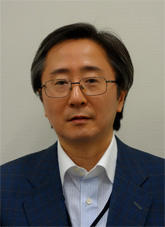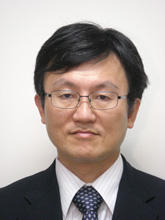The fact that social insurance premiums are regressive and the burden is greater on lower income earners is the most important issue in considering the problem of poverty. Non-regular employees who work less than 30 hours per week are not able to be enrolled in standard employees’ insurance, and have no choice but to enroll in the National Health Insurance and National Pension systems. The burden of premiums is high for these employees. For example, the burden is comparatively higher for a non-regular employee earning two million yen per year than for a regular employee earning a salary of three million yen per year who is enrolled in employees’ insurance.
There are also problems in Japan’s tax system. The tax rate for the upper middle class, earning around eight million yen per year, is low in comparison to Europe and the US, and the burden on this stratum of the population is low.
Due to these systemic problems, those on whom the greatest burden falls are single, non-regular employees ranging in age up to their 40s. Because it is diffi cult to fi nd justifi cations for the provision of support to healthy, childless members of the working generations who are able to work, and such a measure would have trouble winning political support, mechanisms for the redistribution of income via the social security and taxation systems are essential. Looking at the Gini coeffi cient (a measure of the degree of income inequality) for the working generations, we fi nd that the coeffi cient is unchanged before and after the redistribution of income, indicating that income redistribution is not taking place among the members of the working generations.
The generation which experienced the effects of the “employment ice age” are now in their late 30s and early 40s. The percentage of this age group engaged in non-regular employment is gradually increasing. From next year, the scope of application of employees’ insurance will begin to be increased. Because it will be extremely diffi cult in practice to realize regular employment for all non-regular employees, it will be necessary to introduce modes of work which fill the gap between the employment conditions for regular and non-regular employment, enabling non-regular employees to gain a sense of security.
A specialist in labor economics, Associate Professor Kondo researches the status of employment of young people. She views the diffi culty of making the transition from non-regular employment as a generational eff ect produced by the ongoing economic downturn when young people enter the labor market.
In Japan, we have unemployment insurance as the primary safety net, and public assistance, which is considered a last line of defense. In-between these two, however, measures are lacking. This means that we lack measures for the working poor, who are engaged in full-time work but earn only two to three million per year. This was not previously a significant problem in Japan, but with the proportion of the working population involved in non-regular employment having risen to between 30 and 40%, if the issue of the working poor remains unaddressed, it will lead to problems of poverty and may exacerbate the nation’s low birth rate.
The introduction of refundable tax credits would be an effective means of responding to this issue. Under a system of this type, tax exemptions would be granted to individuals earning a specific level of income on condition that they were working; if the amount of the deduction exceeded their tax burden, they would be granted benefits. Japan’s social security system lacks any measures to provide incentive. A system which did not simply provide benefits, but provided benefits on condition that the recipient was working, would assist people in avoiding the poverty trap.
Despite the fact that the Tax Reform Bill formulated in 2012 states that the potential for the introduction of refundable tax credits will be examined, no such examination has proceeded. The main reason for this is that tax refundable tax credits is a concept involving the integrated management of taxation and social security, straddling government agencies. The system could not function without cooperation between the Ministry of Finance, which is responsible for the taxation system, and the Ministry of Health, Labour and Welfare, which supervises the social security system.
The provision of benefits is also susceptible to criticism as “government handouts.” This problem could be avoided if the system was designed to reduce social insurance premiums in the form of an offset rather than providing benefits. This type of scheme is in operation in the Netherlands, and is probably the most feasible system.
A leading authority on taxation, Professor Morinobu specializes in the study of tax law and tax policy. He conducts wide-ranging research regarding integrated reform of Japan’s social security and taxation systems, and emphasizes the necessity for tax system reform in order to balance economic growth and fiscal reconstruction.
Policies of redistribution of income to the poorest classes of society should be effected through the taxation system, with income tax playing a significant role. The reason that Japan’s income tax system lacks this redistributive function is the system of income deduction. From the perspective of enhancing the redistributive function of the tax system, we should re-examine income deduction, and levy appropriate taxes from high income earners.
At the same time, mechanisms to transfer tax funds to low income earners would be necessary. In Japan’s income tax system, individuals whose incomes are lower than the threshold for taxation are not taxed, but do not receive any benefits. The poor among the working generations, the stratum which is becoming an issue, are able to work if presented with the opportunity. From this perspective, earned income tax credits, a mechanism for the transfer of funds which rewards working people, would be an effective measure. Because under a system of this type, if the individual has no working income, they receive no benefits, it encourages the seeking of employment. This can be considered to be a system that possesses an appealing consistency, given that the worker receives benefits when their income is low, and then returns to society in the form of tax payments when their income is sufficiently high.
At the same time, it would also be necessary to consider the taxpayers who support the system. We should levy taxes broadly and thinly, without increasing the marginal tax rate. In order to promote employment among taxpayers to support the system, we would need to eliminate impediments to female employment, such as the spouse exemption.
The first issue in introducing an earned income tax credit is understanding income. In addition to the fact that low-income earners might be working several part-time jobs, because they do not pay tax and thus do not file tax returns, their income is not clearly known. The commencement of the Social Security and Tax Number system offers considerable potential for understanding the income status of low-income earners. The next issue in introducing the system would be the realization of close cooperation between the tax authorities, responsible for levying taxation, and municipal offices, which will be responsible for distributing benefits, with smooth communication and the sharing of income information between the two.
Professor Sato is an expert in the fields of taxation and local government finance. He emphasizes the necessity for reform of Japan’s regional taxation system in order to enable the nation to stabilize regional taxation revenue and respond to economic globalization. Professor Sato is currently a member of the Cabinet Office’s Tax Commission.
Given the severe state of Japan’s public finances, tax increases will be unavoidable, and sizeable cuts in government expenditure will also be necessary. There will be no choice but to limit social security-related expenditure in areas such as welfare, pensions, and medical care for the elderly. It will be essential, however, to simultaneously increase taxes and reduce government expenditure in such a way that the placing of a burden on the poorest members of society will be avoided as much as possible.
The chief focus will no doubt be on increasing taxes via the consumption tax. However, because consumption tax also affects low income earners equally, it will be necessary to introduce some means of reducing the burden. We must consider tax mechanisms which will reduce the impact on the nation’s poorest as much as possible, perhaps via a mechanism to reduce the tax rate, or in the form of refunds. We should avoid basing decisions exclusively on a consumption tax level of 10%; it will be necessary to design a robust system based on the assumption of further increases in the tax rate.
Another essential initiative will be the creation of appropriate tax and social security mechanisms based on an understanding of the distribution of assets realized through the intelligent use of the Social Security and Tax Number system. At present, the disparity between rich and poor is increasing most markedly among the elderly. Whether we should present all of Japan’s elderly with identical social security benefits and levy the same tax burden from them all is a question that requires rethinking. In many cases, it is not possible to gauge the wealth of the elderly based on income alone. Using the Social Security and Tax Number, we would be able to link individuals to financial assets, real estate, etc. While privacy may be sacrificed to some extent, it is necessary for the authorities to understand the distribution of individual assets and to vary the allocation of tax burden and social security benefits between rich and poor. We must aim towards fair taxation and social security systems that redistribute wealth from the rich to the genuinely poor.
A specialist in macroeconomics and financial theory, Professor Kobayashi conducts theoretical research on economic fluctuations, seeking to formulate macroeconomic models which incorporate the financial system in a substantive form. Professor Kobayashi also actively conducts research on issues of political economy, for example change of government.
In considering policy measures for the redistribution of income, there are many more problems with regard to the social security system than the taxation system. It will be essential to examine measures for the correction of the regressivity of social insurance premiums. Because premiums in the National Pension and National Health Insurance systems are fixed, or involve a fixed portion, they function regressively, with the burden becoming relatively greater as the contributor’s income becomes lower.
The National Pension and National Health Insurance systems were originally formulated with the self-employed and individuals involved in agriculture and forestry in mind, and there was no consideration of the connection between premiums and income. Recently, however, there has been a massive increase in the number of non-regular employees of private companies joining the National Pension and National Health Insurance systems. These individuals have relatively low incomes, and thus are directly confronted by the regressivity of social security premiums. Not only is this situation unacceptable in itself, but it also increases the risk that low income earners will be alienated from the safety net provided by medical insurance and the public pension. It is possible, in fact, to verify the magnitude of the problems of late payment and non-payment of social insurance premiums among lower-income earners. It is rather paradoxical that the citizens most in need of support fi nd it diffi cult to benefi t from the social safety net.
In order to address this issue, we must consider the best way to respond to the burden of social insurance premiums together with the re-examination of the taxation system.
With the introduction of a system of refundable tax credits, low income earners whose incomes are below the taxable threshold would receive benefi ts only to the amount that the deduction exceeds the amount of tax that would have been paid. In addition, the tax amount granted as a benefi t would offset the burden of social insurance premiums. This type of system has already been introduced in the Netherlands. The introduction of such a system would ensure that even if no benefi t was paid, the burden of social insurance would be reduced, and low income earners would be more able to contribute premiums. Social security reform linked to taxation reform will be essential if we are to maintain Japan’s world-class universal pension and universal health insurance systems.
A specialist in public economics, Professor Oshio studies social security and income distribution, and the optimal direction for income redistribution and education policies. In the area of social security, he conducts international comparisons of factors including the eff ect of the social security system on employment among the elderly.
In November 2015, the Cabinet Office’s Tax Commission published a proposal for income tax reform. Based on a socioeconomic analysis of Japan, this document indicated that the increased proportion of lowwage work, particularly among younger people, and changes in the model of the family, had not only affected the functioning of former social and family safety nets and weakened the economic foundations of citizens’ lives, but also threatened to exacerbate Japan’s low birth rate and impede the formation of human capital, thus presenting a risk for the foundations of national growth.
It is essential that we mobilize a range of policy efforts, for example in the areas of the childcare system and the job support system, in order to respond to the problems these changes in Japanese society are generating. It will also be necessary to re-examine income tax, assets tax, and other aspects of the taxation system, in order to enhance the system’s redistributive function in tandem with the social security system, allowing us to correct economic disparities and create a society in which every individual is able to marry and raise children if they so desire.
In this issue of My Vision, we gauge our expert interviewees’ thinking regarding the relationship between Japan’s growing socioeconomic disparities and the taxation and social security systems, and seek their opinion concerning the perspective that we should adopt and the ways in which we should reform systems in order to address the issues. The interviewees are united in their opinion that responses through the taxation and social security systems are lagging behind. Many indicate that responses to the regressivity of social security premiums, in particular for low-income earners, and the transition to a taxation system that offers job support will be essential. As new measures necessary to achieve these ends, they suggest the effectiveness of the introduction of a system that combines a system of refundable tax credits, particularly a system of earned income tax credits that benefi ts working people, and a benefi ts system that offsets social insurance premiums. As infrastructure for the correction of disparities, the importance of using the Social Security and Tax Number system which is being introduced this year to gain a thorough understanding of income and assets is indicated.
The reconstruction of the foundations for citizens’ lives and national growth is a race against time, making the early examination and implementation of these policies an urgent matter.
---------------------------------------------
Interviewer: Mari Kawamoto, NIRA Research Coordinator & Assistant
Editor: Kazuyoshi Harada
Period of interviews: October 2015
This is a translation of a paper originally published in Japanese.NIRA bears full responsibility for the translation presented here.Translated by Michael Faul.
 Ayako Kondo Associate Professor, Faculty of International Social Sciences, Yokohama National UniversityThe fact that social insurance premiums are regressive and the...
Ayako Kondo Associate Professor, Faculty of International Social Sciences, Yokohama National UniversityThe fact that social insurance premiums are regressive and the... Shigeki Morinobu Professor, Chuo Law SchoolIn Japan, we have unemployment insurance as the primary...
Shigeki Morinobu Professor, Chuo Law SchoolIn Japan, we have unemployment insurance as the primary... Motohiro Sato Professor, School of International and Public Policy, Graduate School of Economics, Hitotsubashi UniversityPolicies of redistribution of income to the poorest classes of society...
Motohiro Sato Professor, School of International and Public Policy, Graduate School of Economics, Hitotsubashi UniversityPolicies of redistribution of income to the poorest classes of society... Keiichiro Kobayashi Professor, Faculty of Economics, Keio UniversityGiven the severe state of Japan’s public finances, tax increases...
Keiichiro Kobayashi Professor, Faculty of Economics, Keio UniversityGiven the severe state of Japan’s public finances, tax increases... Takashi Oshio Professor, Institute of Economic Research, Hitotsubashi UniversityIn considering policy measures for the redistribution of income,...
Takashi Oshio Professor, Institute of Economic Research, Hitotsubashi UniversityIn considering policy measures for the redistribution of income,...



EXPERT OPINIONS
01
Towards a society in which citizens can live comfortably despite non-regular employment
Towards a society in which citizens can live comfortably despite non-regular employment
Ayako Kondo Associate Professor, Faculty of International Social Sciences, Yokohama National University
The fact that social insurance premiums are regressive and the burden is greater on lower income earners is the most important issue in considering the problem of poverty. Non-regular employees who work less than 30 hours per week are not able to be enrolled in standard employees’ insurance, and have no choice but to enroll in the National Health Insurance and National Pension systems. The burden of premiums is high for these employees. For example, the burden is comparatively higher for a non-regular employee earning two million yen per year than for a regular employee earning a salary of three million yen per year who is enrolled in employees’ insurance.
There are also problems in Japan’s tax system. The tax rate for the upper middle class, earning around eight million yen per year, is low in comparison to Europe and the US, and the burden on this stratum of the population is low.
Due to these systemic problems, those on whom the greatest burden falls are single, non-regular employees ranging in age up to their 40s. Because it is diffi cult to fi nd justifi cations for the provision of support to healthy, childless members of the working generations who are able to work, and such a measure would have trouble winning political support, mechanisms for the redistribution of income via the social security and taxation systems are essential. Looking at the Gini coeffi cient (a measure of the degree of income inequality) for the working generations, we fi nd that the coeffi cient is unchanged before and after the redistribution of income, indicating that income redistribution is not taking place among the members of the working generations.
The generation which experienced the effects of the “employment ice age” are now in their late 30s and early 40s. The percentage of this age group engaged in non-regular employment is gradually increasing. From next year, the scope of application of employees’ insurance will begin to be increased. Because it will be extremely diffi cult in practice to realize regular employment for all non-regular employees, it will be necessary to introduce modes of work which fill the gap between the employment conditions for regular and non-regular employment, enabling non-regular employees to gain a sense of security.
A specialist in labor economics, Associate Professor Kondo researches the status of employment of young people. She views the diffi culty of making the transition from non-regular employment as a generational eff ect produced by the ongoing economic downturn when young people enter the labor market.
02
Respond to the problem of the working poor by providing refundable tax credits
Respond to the problem of the working poor by providing refundable tax credits
Shigeki Morinobu Professor, Chuo Law School
In Japan, we have unemployment insurance as the primary safety net, and public assistance, which is considered a last line of defense. In-between these two, however, measures are lacking. This means that we lack measures for the working poor, who are engaged in full-time work but earn only two to three million per year. This was not previously a significant problem in Japan, but with the proportion of the working population involved in non-regular employment having risen to between 30 and 40%, if the issue of the working poor remains unaddressed, it will lead to problems of poverty and may exacerbate the nation’s low birth rate.
The introduction of refundable tax credits would be an effective means of responding to this issue. Under a system of this type, tax exemptions would be granted to individuals earning a specific level of income on condition that they were working; if the amount of the deduction exceeded their tax burden, they would be granted benefits. Japan’s social security system lacks any measures to provide incentive. A system which did not simply provide benefits, but provided benefits on condition that the recipient was working, would assist people in avoiding the poverty trap.
Despite the fact that the Tax Reform Bill formulated in 2012 states that the potential for the introduction of refundable tax credits will be examined, no such examination has proceeded. The main reason for this is that tax refundable tax credits is a concept involving the integrated management of taxation and social security, straddling government agencies. The system could not function without cooperation between the Ministry of Finance, which is responsible for the taxation system, and the Ministry of Health, Labour and Welfare, which supervises the social security system.
The provision of benefits is also susceptible to criticism as “government handouts.” This problem could be avoided if the system was designed to reduce social insurance premiums in the form of an offset rather than providing benefits. This type of scheme is in operation in the Netherlands, and is probably the most feasible system.
A leading authority on taxation, Professor Morinobu specializes in the study of tax law and tax policy. He conducts wide-ranging research regarding integrated reform of Japan’s social security and taxation systems, and emphasizes the necessity for tax system reform in order to balance economic growth and fiscal reconstruction.
03
Establish benefit mechanisms that encourage people to work
Establish benefit mechanisms that encourage people to work
Motohiro Sato Professor, School of International and Public Policy, Graduate School of Economics, Hitotsubashi University
Policies of redistribution of income to the poorest classes of society should be effected through the taxation system, with income tax playing a significant role. The reason that Japan’s income tax system lacks this redistributive function is the system of income deduction. From the perspective of enhancing the redistributive function of the tax system, we should re-examine income deduction, and levy appropriate taxes from high income earners.
At the same time, mechanisms to transfer tax funds to low income earners would be necessary. In Japan’s income tax system, individuals whose incomes are lower than the threshold for taxation are not taxed, but do not receive any benefits. The poor among the working generations, the stratum which is becoming an issue, are able to work if presented with the opportunity. From this perspective, earned income tax credits, a mechanism for the transfer of funds which rewards working people, would be an effective measure. Because under a system of this type, if the individual has no working income, they receive no benefits, it encourages the seeking of employment. This can be considered to be a system that possesses an appealing consistency, given that the worker receives benefits when their income is low, and then returns to society in the form of tax payments when their income is sufficiently high.
At the same time, it would also be necessary to consider the taxpayers who support the system. We should levy taxes broadly and thinly, without increasing the marginal tax rate. In order to promote employment among taxpayers to support the system, we would need to eliminate impediments to female employment, such as the spouse exemption.
The first issue in introducing an earned income tax credit is understanding income. In addition to the fact that low-income earners might be working several part-time jobs, because they do not pay tax and thus do not file tax returns, their income is not clearly known. The commencement of the Social Security and Tax Number system offers considerable potential for understanding the income status of low-income earners. The next issue in introducing the system would be the realization of close cooperation between the tax authorities, responsible for levying taxation, and municipal offices, which will be responsible for distributing benefits, with smooth communication and the sharing of income information between the two.
Professor Sato is an expert in the fields of taxation and local government finance. He emphasizes the necessity for reform of Japan’s regional taxation system in order to enable the nation to stabilize regional taxation revenue and respond to economic globalization. Professor Sato is currently a member of the Cabinet Office’s Tax Commission.
04
Understanding the status of assets by means of the Social Security and Tax Number
Understanding the status of assets by means of the Social Security and Tax Number
Keiichiro Kobayashi Professor, Faculty of Economics, Keio University
Given the severe state of Japan’s public finances, tax increases will be unavoidable, and sizeable cuts in government expenditure will also be necessary. There will be no choice but to limit social security-related expenditure in areas such as welfare, pensions, and medical care for the elderly. It will be essential, however, to simultaneously increase taxes and reduce government expenditure in such a way that the placing of a burden on the poorest members of society will be avoided as much as possible.
The chief focus will no doubt be on increasing taxes via the consumption tax. However, because consumption tax also affects low income earners equally, it will be necessary to introduce some means of reducing the burden. We must consider tax mechanisms which will reduce the impact on the nation’s poorest as much as possible, perhaps via a mechanism to reduce the tax rate, or in the form of refunds. We should avoid basing decisions exclusively on a consumption tax level of 10%; it will be necessary to design a robust system based on the assumption of further increases in the tax rate.
Another essential initiative will be the creation of appropriate tax and social security mechanisms based on an understanding of the distribution of assets realized through the intelligent use of the Social Security and Tax Number system. At present, the disparity between rich and poor is increasing most markedly among the elderly. Whether we should present all of Japan’s elderly with identical social security benefits and levy the same tax burden from them all is a question that requires rethinking. In many cases, it is not possible to gauge the wealth of the elderly based on income alone. Using the Social Security and Tax Number, we would be able to link individuals to financial assets, real estate, etc. While privacy may be sacrificed to some extent, it is necessary for the authorities to understand the distribution of individual assets and to vary the allocation of tax burden and social security benefits between rich and poor. We must aim towards fair taxation and social security systems that redistribute wealth from the rich to the genuinely poor.
A specialist in macroeconomics and financial theory, Professor Kobayashi conducts theoretical research on economic fluctuations, seeking to formulate macroeconomic models which incorporate the financial system in a substantive form. Professor Kobayashi also actively conducts research on issues of political economy, for example change of government.
05
Correct the regressivity of social security premiums
Correct the regressivity of social security premiums
Takashi Oshio Professor, Institute of Economic Research, Hitotsubashi University
In considering policy measures for the redistribution of income, there are many more problems with regard to the social security system than the taxation system. It will be essential to examine measures for the correction of the regressivity of social insurance premiums. Because premiums in the National Pension and National Health Insurance systems are fixed, or involve a fixed portion, they function regressively, with the burden becoming relatively greater as the contributor’s income becomes lower.
The National Pension and National Health Insurance systems were originally formulated with the self-employed and individuals involved in agriculture and forestry in mind, and there was no consideration of the connection between premiums and income. Recently, however, there has been a massive increase in the number of non-regular employees of private companies joining the National Pension and National Health Insurance systems. These individuals have relatively low incomes, and thus are directly confronted by the regressivity of social security premiums. Not only is this situation unacceptable in itself, but it also increases the risk that low income earners will be alienated from the safety net provided by medical insurance and the public pension. It is possible, in fact, to verify the magnitude of the problems of late payment and non-payment of social insurance premiums among lower-income earners. It is rather paradoxical that the citizens most in need of support fi nd it diffi cult to benefi t from the social safety net.
In order to address this issue, we must consider the best way to respond to the burden of social insurance premiums together with the re-examination of the taxation system.
With the introduction of a system of refundable tax credits, low income earners whose incomes are below the taxable threshold would receive benefi ts only to the amount that the deduction exceeds the amount of tax that would have been paid. In addition, the tax amount granted as a benefi t would offset the burden of social insurance premiums. This type of system has already been introduced in the Netherlands. The introduction of such a system would ensure that even if no benefi t was paid, the burden of social insurance would be reduced, and low income earners would be more able to contribute premiums. Social security reform linked to taxation reform will be essential if we are to maintain Japan’s world-class universal pension and universal health insurance systems.
A specialist in public economics, Professor Oshio studies social security and income distribution, and the optimal direction for income redistribution and education policies. In the area of social security, he conducts international comparisons of factors including the eff ect of the social security system on employment among the elderly.
About this Issue
Income Disparity and the Tax System
Income Disparity and the Tax System
Yuri Okina NIRA Executive Vice President / Vice Chairman of the Japan Research Institute, Limited
In November 2015, the Cabinet Office’s Tax Commission published a proposal for income tax reform. Based on a socioeconomic analysis of Japan, this document indicated that the increased proportion of lowwage work, particularly among younger people, and changes in the model of the family, had not only affected the functioning of former social and family safety nets and weakened the economic foundations of citizens’ lives, but also threatened to exacerbate Japan’s low birth rate and impede the formation of human capital, thus presenting a risk for the foundations of national growth.
It is essential that we mobilize a range of policy efforts, for example in the areas of the childcare system and the job support system, in order to respond to the problems these changes in Japanese society are generating. It will also be necessary to re-examine income tax, assets tax, and other aspects of the taxation system, in order to enhance the system’s redistributive function in tandem with the social security system, allowing us to correct economic disparities and create a society in which every individual is able to marry and raise children if they so desire.
In this issue of My Vision, we gauge our expert interviewees’ thinking regarding the relationship between Japan’s growing socioeconomic disparities and the taxation and social security systems, and seek their opinion concerning the perspective that we should adopt and the ways in which we should reform systems in order to address the issues. The interviewees are united in their opinion that responses through the taxation and social security systems are lagging behind. Many indicate that responses to the regressivity of social security premiums, in particular for low-income earners, and the transition to a taxation system that offers job support will be essential. As new measures necessary to achieve these ends, they suggest the effectiveness of the introduction of a system that combines a system of refundable tax credits, particularly a system of earned income tax credits that benefi ts working people, and a benefi ts system that offsets social insurance premiums. As infrastructure for the correction of disparities, the importance of using the Social Security and Tax Number system which is being introduced this year to gain a thorough understanding of income and assets is indicated.
The reconstruction of the foundations for citizens’ lives and national growth is a race against time, making the early examination and implementation of these policies an urgent matter.
---------------------------------------------
Interviewer: Mari Kawamoto, NIRA Research Coordinator & Assistant
Editor: Kazuyoshi Harada
Period of interviews: October 2015
This is a translation of a paper originally published in Japanese.NIRA bears full responsibility for the translation presented here.Translated by Michael Faul.